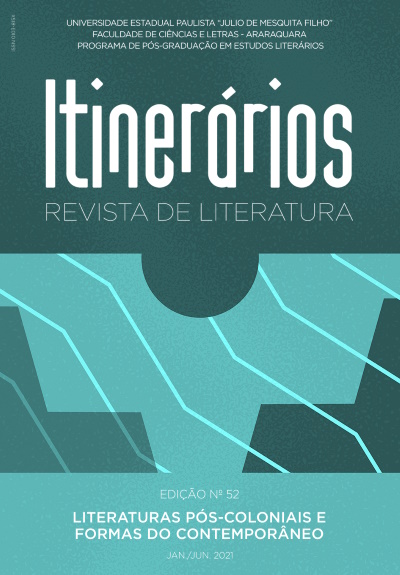Espelhos do mito em Alma da África
a metaficção pós-colonial na trilogia de Antonio Olinto
DOI:
https://doi.org/10.58943/irl.vi52.14648Palavras-chave:
Metaficção pós-colonial, Mitologia dos orixás, Matriarcado, Alma da África, Antonio OlintoResumo
Alma da África (OLINTO, 2007a, 2007b, 2007c), do mineiro Antonio Olinto (1919-2009), focaliza a experiência feminina no processo de descolonização e redemocratização africana. Com este artigo, analisamos a trilogia de Olinto enquanto metaficção historiográfica, conceito cunhado por Hutcheon em Poética do Pós-Modernismo (1991), em um estudo sobre a presença arquetípica expandindo a compreensão simbólica na tessitura literária, como postula Meletínski, em Os Arquétipos Literários (2015). Em A Casa da Água, vemos um romance que problematiza a reterritorialização do sujeito da diáspora, baseado no retorno da família de Mariana à África de seus antepassados. Em O Rei de Keto, a saga familiar afrobrasileira é interrompida pelo aparecimento de uma figura central para a compreensão do matriarcado tribal, a mulher dos mercados, presentificada pela protagonista Abionan. As adversidades da redemocratização e o aparecimento de novas e híbridas identidades revelam-se no trajeto político de Mariana Ilufemi, em Trono de Vidro. Em suma, por meio de uma análise dos reflexos da mitologia orixaísta sobre a prosa olintiana, este trabalho chama a atenção para o caráter desafiador de sua arquetipia feminina, expressada na ação contestadora da matriarca africana em Alma da África (2007a, 2007b, 2007c).
Downloads
Publicado
Edição
Seção
Licença
Os manuscritos aceitos e publicados são de propriedade da revista Itinerários. É vedada a submissão integral ou parcial do manuscrito a qualquer outro periódico. A responsabilidade do conteúdo dos artigos é exclusiva dos autores. É vedada a tradução para outro idioma sem a autorização escrita do Editor ouvida a Comissão Editorial.

